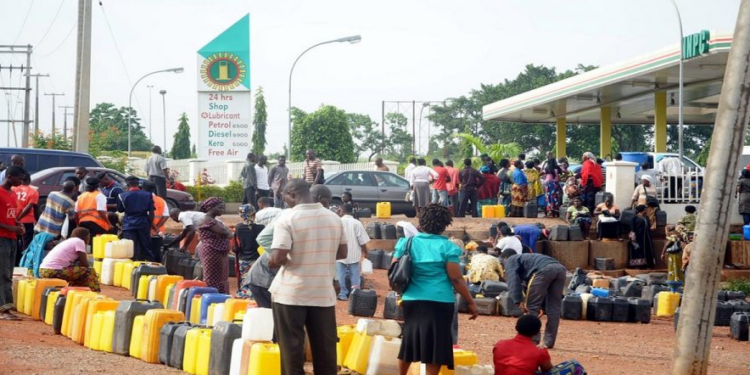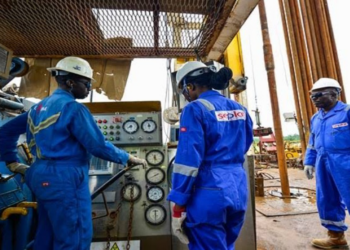Fuel scarcity has returned to major cities like Lagos and Abuja, with vehicles seen queuing at the few filling stations selling petrol on Sunday and Monday.
This comes as NNPC denies owing oil traders a $6.8 billion fuel subsidy debt, which some believe is contributing to the supply challenges.
Major roads in Lagos and Abuja were noticeably empty, as observed by Nairametrics, due to motorists lacking petrol to move around.
Even NNPC-owned filling stations were completely shut, with some motorists waiting in front, hoping the stations would eventually open.
The product was sold yesterday at prices ranging from N840 to N1,000 at various locations across the country.
Causes of the Fuel Scarcity
Sources who spoke to Nairametrics suggested that the ongoing fuel scarcity may be linked to NNPC’s foreign obligations resulting from the removal of the fuel subsidy. Since the subsidy was removed, fuel shortages have persisted, despite price hikes at various filling stations.
NNPC has repeatedly cited factors such as supply disruptions and weather-related issues for the scarcity. However, insiders revealed to Nairametrics that NNPC is struggling to settle its debts with oil trading partners.
This financial strain, compounded by the rise in international crude oil prices, has led to a significant outstanding debt of approximately $6.8 billion.
As a result, oil traders have been reluctant to deliver fuel cargoes to NNPC.
“There are cargoes piling up in the offshore but because they (NNPC) can’t pay the traders won’t deliver,” the source said.
NNPC has firmly denied owing $6.8 billion to any oil trader, stating that buying products on credit is a standard practice in the oil industry.
The company has assured that it is addressing its financial obligations, though it has not disclosed the total amount of its debt.
“That NNPC Ltd. Does not owe the sum of $6.8bn to any international trader(s). In the oil trading business, transactions are carried out on credit, so it is normal to owe at one point or the other. But NNPC Ltd., through its subsidiary, NNPC Trading, has many open trade credit lines from several traders. The company is paying its obligations of related invoices on a first-in-first-out (FIFO) basis,” the company said.
Fuel Scarcity could Persist for Weeks
Other sources mentioned that the scarcity could go on for weeks, adding that the long-term solution is that NNPC resolved its obligations or the federal government intervenes in the situation.
The Insider mentioned that the cargoes can only be delivered if NNPC at least makes some commitment in some payment.
“It could be like this for weeks if the government doesn’t resolve the gridlock,” the source said.
Filling Stations, NNPC’s Reaction
On their part, most filing stations admitted that the fuel scarcity is due to lack of distribution of petroleum products by marketers to their pump stations.
However, they cannot explain what is causing the shortage of distribution.
In a statement made available to Nairametrics, NNPC spokesperson, Olufemi Soneye, confirmed the scarcity, adding that it’s based on distribution challenges.
Soneye advised against panic buying, adding that NNPC is working around the clock to resolve the issues.
“The NNPC Ltd regrets the tightness in fuel supply witnessed in some parts of Lagos and the FCT, which is as a result of distribution challenges.
“The Company further urges motorists to shun panic buying as it is working round the clock with relevant stakeholders to restore normalcy,” Soneye said.
This will be the third time in three months that NNPC is explaining the reason for fuel scarcity in the country.






















